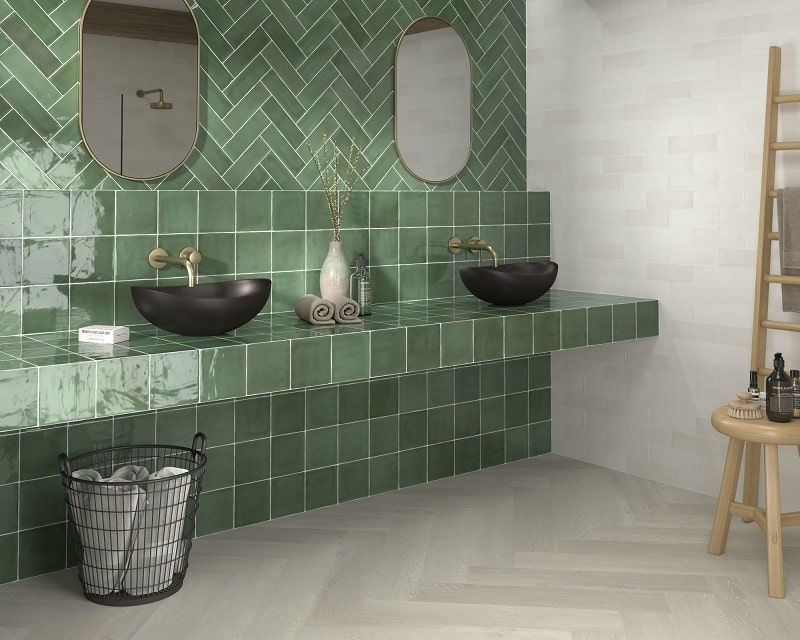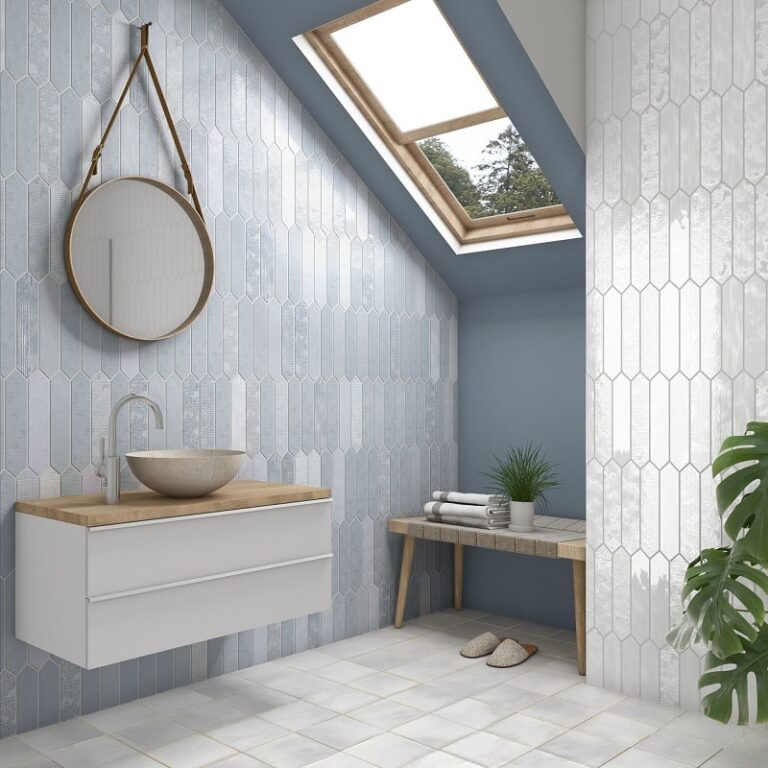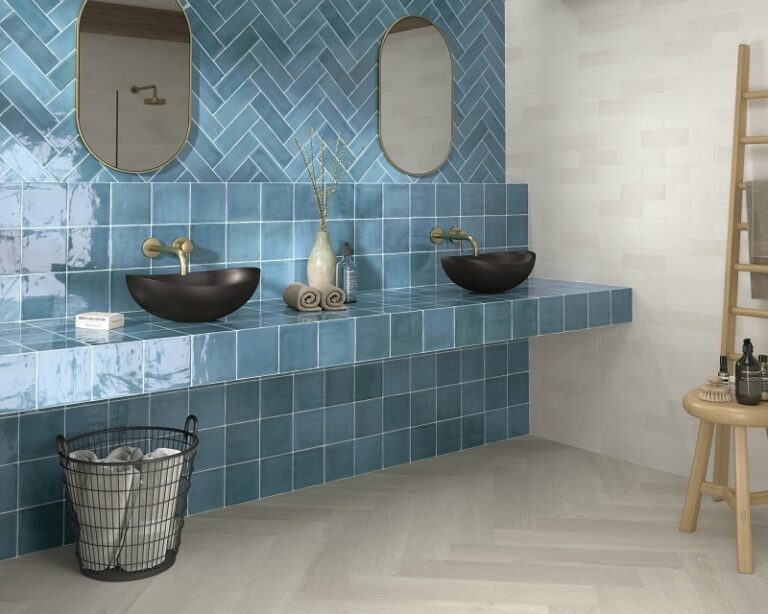
Dune – Spanish porcelain tiles
The ceramic brand Dune was founded in Spain in 1993 and is today known for its quality and distinctive design. The brand’s collections include floor and wall tiles, mosaic tiles and handrails. Dune is unique in its variety of shapes and textures, which allows designers and users to create unique spaces.
The Dune range includes both ceramic and porcelain tiles. Porcelain tiles are distinguished by their strength and durability — they are pressed under high pressure and fired at high temperatures, making them stronger and less porous than conventional ceramics. Thanks to this process, porcelain tiles maintain their structural integrity and withstand even everyday wear and tear. That is why they are suitable for intensively used spaces, such as hotels, restaurants or commercial facilities.

Porcelain tile is virtually impervious to moisture and stains, which makes it easy to maintain and makes it particularly practical in bathrooms and kitchens. The non-porous surface prevents the accumulation of dirt and bacteria, ensuring hygiene and easy cleaning. It is also characterized by color stability – it retains its original color over time, which is especially important in commercial spaces. Some models are additionally treated with an anti-slip surface, which increases safety in wet environments.
porcelain stoneware on the other hand, is lighter and is often used for wall decoration. It is made with relatively less pressure, which makes it easier to cut and install. For the same reason, ceramic tiles are often distinguished by relief and wavy designs, which give the interior more character. Their use is recommended for indoor spaces where high wear resistance is not required.
Special attention is also paid to Dune mosaic tiles, which are ideal for curved surfaces. Small mosaic elements arranged on a grid easily fit into round shapes and add elegance and originality to the space. That is why mosaic tiles are often used to create decorative elements in both residential and public interiors.
During the installation process, it is important to leave the right gaps — at least 2 mm is recommended for straight tiles, and 5 mm for slightly deformed ones. Before grouting, the surface must be dry and clean, and when cleaning, it is better to avoid rough and abrasive means so as not to damage the surface.

The difference between tiles made of white and red clay is interesting. Technically, this difference is small, although white clay has a finer structure and allows for smoother, sharper and brighter colors. That is why white clay tiles are often produced in larger sizes and can be either rectified or non-rectified, unlike the red clay versions. Due to these properties, white clay tiles are considered more refined and visually elegant.
Finally, it is worth noting that all Dune tiles are made from white clay, which ensures their exceptional quality, purity of color and unique aesthetics.





